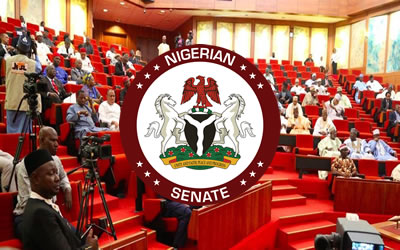FCT TENANCY BILL
By Emmanuel Adefeso Esq.
Against apparent odds, the Senate is pushing towards enacting a bill that will limit house rental in the Federal Capital Territory (FCT) to three-month advance payment for a new tenant, and monthly payment thereafter. The proposed law titled “Advanced Rent (Residential Apartments, Office Spaces, etc.) Regulation Bill 2022,” sponsored by Senator Smart Adeyemi representing Kogi West, scaled second reading in the red chamber last week and got decapped to the Committee on Housing and Urban Development for further input. The committee has four weeks to report back to Senate at plenary.
The bill prescribed a three-month jail term or N1million fine for offenders. The proposed law seeks to protect low income earners from any form of oppression by homeowners as well as provide a safety net for landlords against erring tenants. The bill bars landlords from demanding from a fresh tenant, rent in excess of three months. It also bars the tenant from offering to pay rent in excess of three months in case he or she is securing the use of the apartment for the first time. In case of termination of agreement, the bill prescribes a one-month notice to a tenant paying rents on a monthly basis and three-month notice to a tenant paying on a quarterly basis.
The bill forbids arbitrary increase of rent and gives the courts the powers to determine reasonable rent increments. The bill gives exclusive jurisdictions to the magistrate courts to try rent cases, but that either of the two parties could appeal to the High Courts.
To be sure, the intention of the bill is noble as it seeks to provide social protection and make life less stressful for the working class in the federal capital, who incidentally are in the majority. In canvassing the bill, Adeyemi said if passed, it would enhance the well-being and living standard of FCT residents as well as minimise corruption and immorality encouraged by the oppressive tenancy system in place. He noted that the current system whereby landlords demand one to three years of rent in advance overburdens the residents, especially salaried workers, and breeds inequality and moral decadence as low income earners often resort to corruption, prostitution and other forms of criminality to keep a roof over their heads. Other senators argued in the same line, with Deputy Senate President Ovie Omo-Agege who presided at plenary saying the bill was “popular” given the number of persons that have shown interest in it. The only lawmaker who spoke against the bill, Senator Chimaroke Nnamani, hinted at this when he said the issue of rent payment should be governed by free market forces like land availability, cost of building materials and capital outlay. He argued that if government wants to ameliorate the sufferings of the masses, (it) can go into housing schemes, mortgage schemes, housing credit facilities, not control the business of private individuals in an emerging African democracy.
It is unarguable that Abuja rent growth is outpacing the rest of the northern region as the city’s apartment market roars back from the depths of the pandemic and puts pressure on the disposable income of residents. Therefore, the intervention of government in rent issues is commendable. Nevertheless, the Senate must take care not to enact a lame law as that could be the case if the bill being processed is confined to front-end transactions between landlords and rent-seekers, without addressing back-end factors like provision of mortgage funding, land costs and the cost of building materials, among others. It is hoped that the Bill when passed into law will be able to address the dire housing concerns in the Federal Capital Territory.
Another point that needs to be addressed is that, ordinarily, tenancies and disputes between landlords and tenants are civil matters and are not criminal matters, but there is the necessity for the government to provide a regulatory framework on housing and tenancy issues. Thus, the need for regulatory guidance should not be made complicated with over-criminalization. The penalty of imprisonment of a three-month jail term for offenders under the proposed Bill should be critically reviewed as there is a great need to decongest Nigeria’s over-populated correctional facilities and simple tenancy issues should not be added to the already long list of criminal matters.

